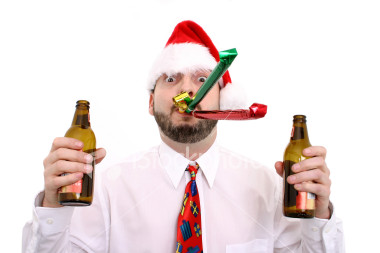Do you know some people actually map out plans on how to drown themselves in alcohol? Some have taken alcohol to be their sleeping elixir, which it’s not quite–ask a professional in the medical field. We have all established the fact that alcohol does more harm than good to our health–so how bad exactly? What is even good about it? Let’s discuss.
The bad. Let’s count how much calories you consume
If you’re trying to lose weight or get in shape or not trying to get that funny looking bloated stomach (men at the beer parlour kind of stomach) which type of alcohol should you order? In terms of sheer calorie count, beer has the most — about 150 calories. However, if you opt for light beer, that’s about 100 calories, which is about the same as a serving of wine or liquor. Beer usually has around 10 to 20 grams of carbs (although strong, sweet beers have more), while lagers and stouts have the least (around 6 to 11 grams). If wine is your thing, a glass of red only has two grams of carbohydrates, and keep in mind that drier wines will have fewer carbs and sugar. Hard liquor actually comes in at zero sugar and carbs. That might seem like a win, but it all depends how you drink it.
Maybe the good. Your brain loves the booze and might benefit from it
Let’s be honest, going overboard on drinks can make your brain feel foggy at best, or short a few brain cells at worst. But, keep your bar tab under control and you might actually be doing your brain a favor. Drinking moderate amounts of alcohol throughout your life can actually ward off cognitive decline and improve brain function. A study found that of the 489 women studied, moderate drinkers scored higher than abstinent women or heavy drinkers on a “Decline in cognition is usually due to the brain not receiving enough oxygen,” an expert explained on the cognitive functioning test.
Another good? Alcohol might prevent you from having stroke
Something good might just come out of your moderate alcohol gulps. Alcohol’s blood thinning effect can help ward off strokes. An expert explains that there are two types of strokes: ischemic, when a blood clot stops blood from going to parts of the brain, and hemorrhagic, when the brain bleeds too much. Around 80 percent of strokes are ischemic, which is where alcohol comes in. Moderate drinking helps reduce the clotting of blood, so there’s less of a possibility of a blood vessel being clogged. And then even if a clot does happen, alcohol can help with fibrinolysis, which is the dissolution of the clot.
The bad news. Alcohol doesn’t actually make you sleep well
If you imbibe before bed, you might help yourself nod off, but you’re not doing your body any favors in the long run. “Alcohol may help you sleep now, but you’ll likely pay for it by being wakeful later,” an expert explains. Boozy beverages can disrupt what’s known as sleep homeostasis, the process that helps your body regulate sleep, according to research in the journal, Alcohol. While alcohol is a somnogen, or sleep inducer, it can also disrupt you in the middle of the night. Then there’s the fact that relying on alcohol to help you sleep can lead to problems down the road. What tends to happen is that alcohol works less and less well as a sleep aid over time, so we respond by increasing the amount we are drinking.
The worse. Binge drinking
Binge drinking is “a pattern of drinking that brings blood alcohol concentration (BAC) levels to 0.08.” That’s about four or more drinks for women and five or more drinks for men within about two hours. In the study, researchers discovered binge drinkers had bacterial DNA in their bloodstreams, which was a sign bacteria had leaked out from the gut. They also discovered elevated endotoxin present in the blood, which means toxins had been released from cells after cell walls were damaged by booze. The consequences: These toxins could lead to fever, tissue destruction and inflammation, which is tied to a host of health problems from cancer to depression. It sounds scary, but avoiding these issues is pretty simple if you live by the words for God sake “It’s all about moderation.”
So, I hope you make better choices this weekend and the next…or every time you have the chance to drink.



Leave a Reply